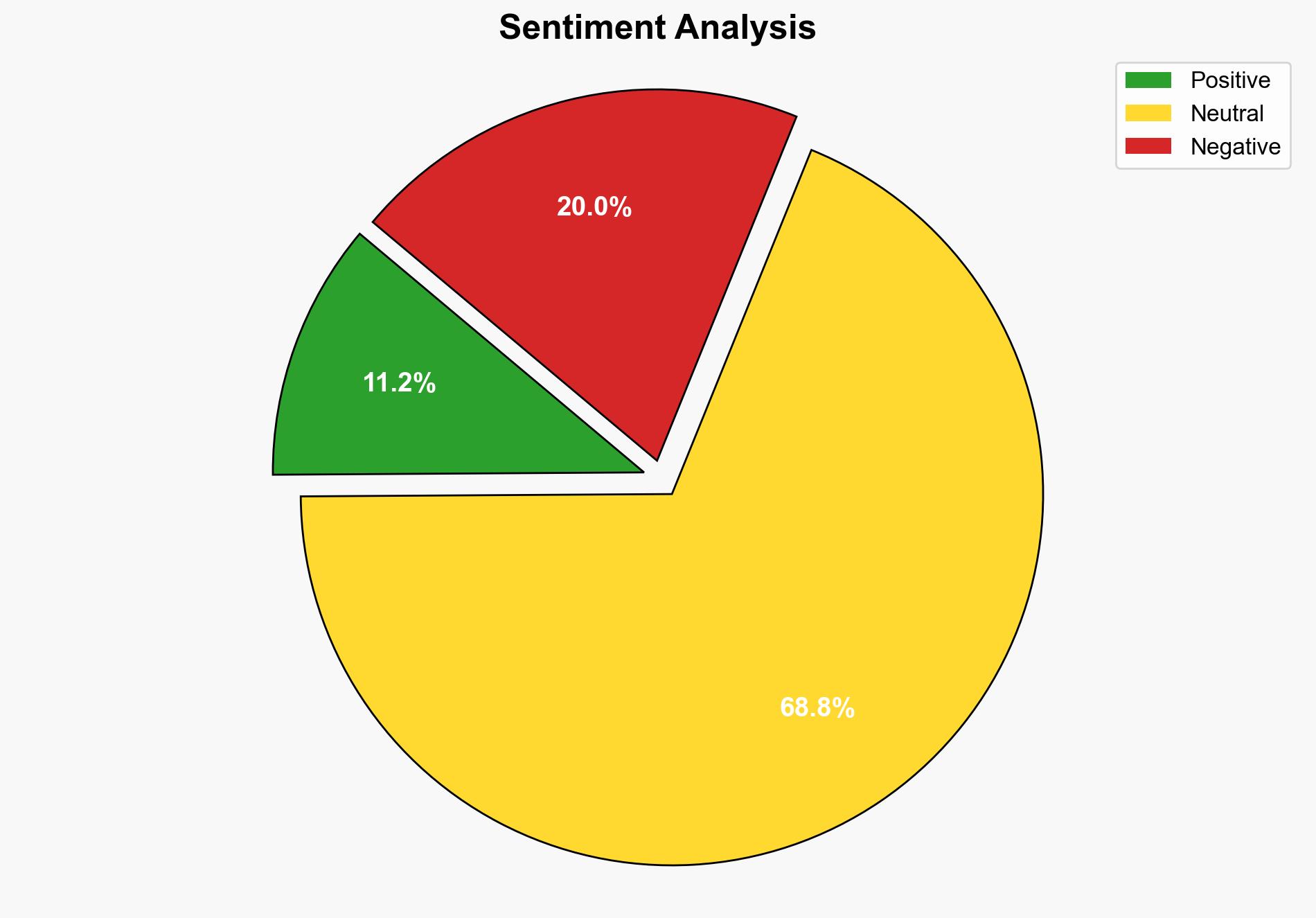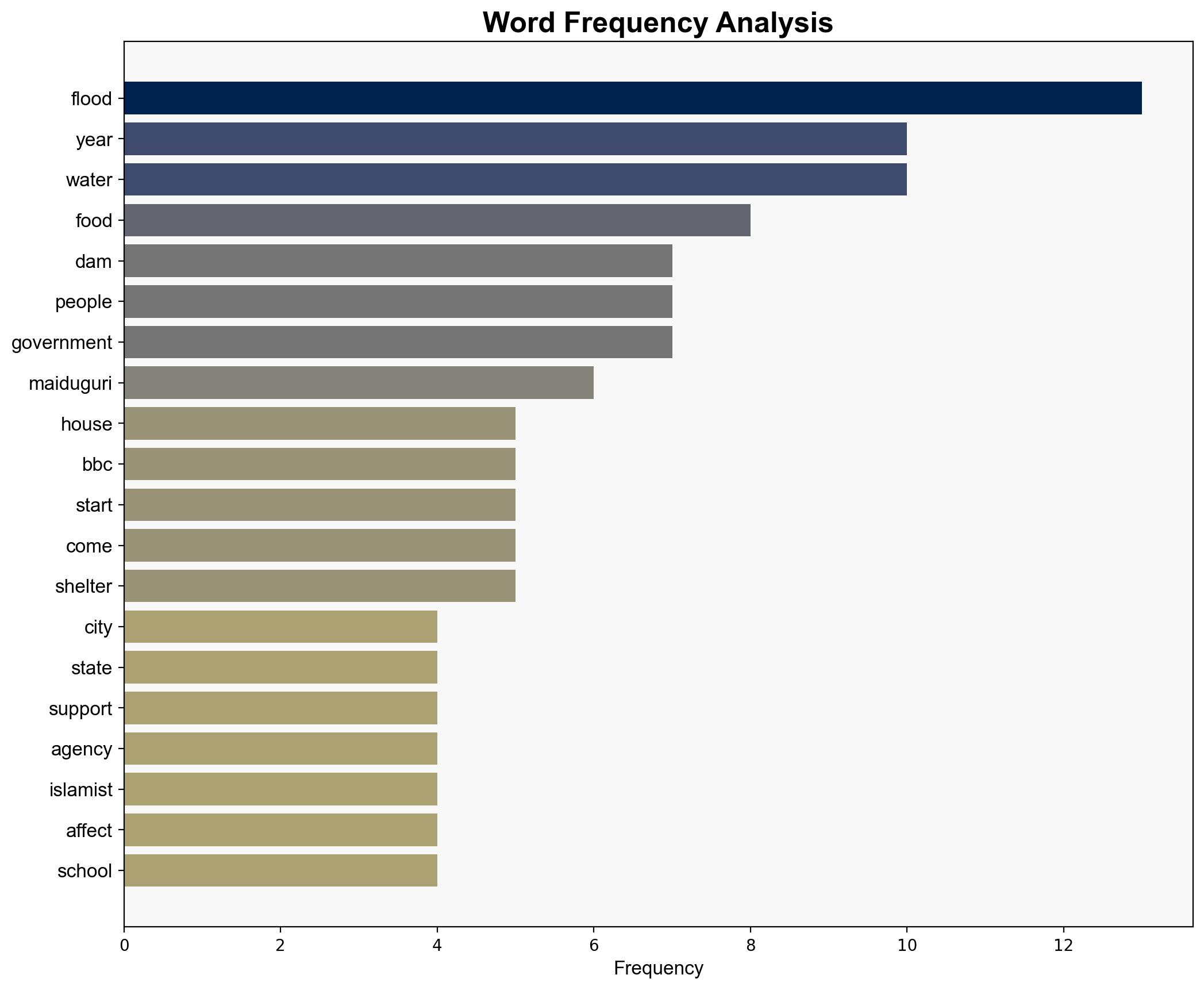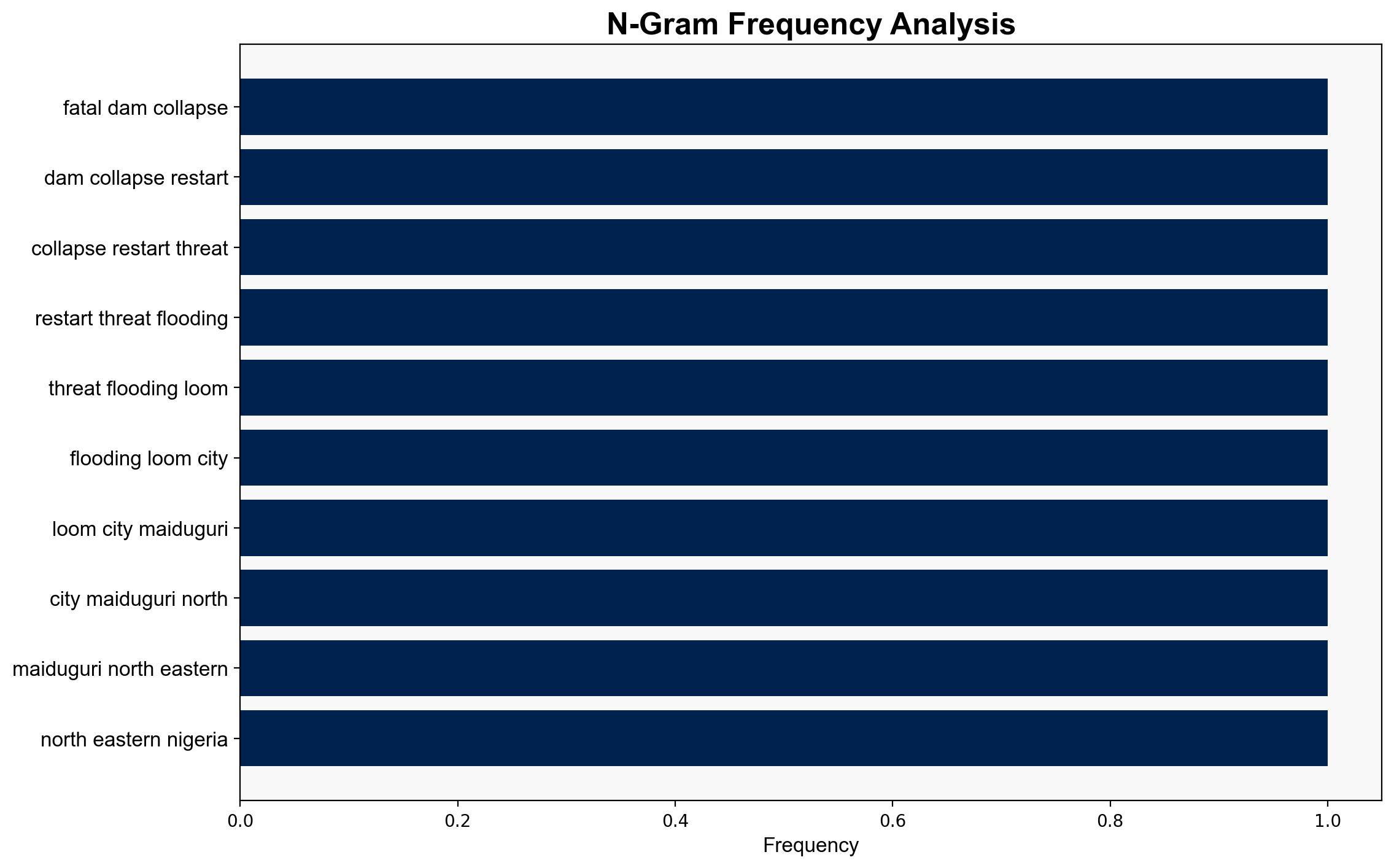‘We are still waiting still suffering’ The legacy of a deadly Nigerian dam collapse – BBC News
Published on: 2025-09-11
Intelligence Report: ‘We are still waiting still suffering’ The legacy of a deadly Nigerian dam collapse – BBC News
1. BLUF (Bottom Line Up Front)
The most supported hypothesis is that the Nigerian government’s inadequate maintenance of the dam infrastructure, compounded by security challenges, is the primary cause of the flooding and subsequent humanitarian crisis. Confidence Level: Moderate. Recommended action includes prioritizing dam infrastructure maintenance and enhancing security measures to prevent further disasters.
2. Competing Hypotheses
1. **Hypothesis A**: The dam collapse and subsequent flooding are primarily due to inadequate maintenance and oversight by the Nigerian government, exacerbated by security challenges posed by Boko Haram.
2. **Hypothesis B**: The flooding is mainly a result of unprecedented natural events, such as extreme weather patterns, with government and security issues playing a secondary role.
Using ACH 2.0, Hypothesis A is better supported due to the consistent reports of neglected infrastructure and the impact of insurgency on maintenance efforts. Hypothesis B is less supported as the narrative focuses more on human and systemic failures rather than purely natural causes.
3. Key Assumptions and Red Flags
– **Assumptions**: It is assumed that the government has the capacity to maintain the dam if not for security issues. There is also an assumption that the insurgency directly impacts maintenance efforts.
– **Red Flags**: The lack of detailed data on government spending and maintenance efforts raises questions about resource allocation. Additionally, the absence of specific meteorological data makes it difficult to fully evaluate the role of natural events.
4. Implications and Strategic Risks
The continued neglect of infrastructure could lead to repeated flooding, exacerbating humanitarian crises and potentially destabilizing the region further. The interplay between natural disasters and insurgency could strain local and national resources, impacting economic stability and increasing displacement. There is also a risk of radicalization as communities become increasingly disillusioned with government responses.
5. Recommendations and Outlook
- Enhance infrastructure maintenance programs with international support to ensure sustainability and resilience against natural disasters.
- Strengthen security measures around critical infrastructure to prevent insurgency-related disruptions.
- Scenario Projections:
- Best Case: Successful collaboration between government and international partners leads to improved infrastructure and security, reducing future flood risks.
- Worst Case: Continued neglect and insurgency result in repeated disasters, further destabilizing the region.
- Most Likely: Incremental improvements in infrastructure and security, with periodic setbacks due to ongoing insurgency challenges.
6. Key Individuals and Entities
– Sa’adatu Dahiru
– Mohammed Shettima
– Maryam Jidda
– Ali Kadau
– Babagana Umara Zulum
7. Thematic Tags
national security threats, infrastructure resilience, counter-terrorism, regional focus





